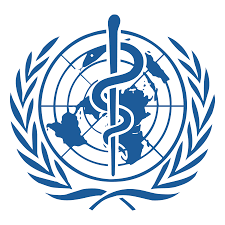
WHO Tests Global Pandemic Readiness in First-Ever ‘Exercise Polaris’ Simulation
In a major step toward strengthening global readiness for health emergencies, the World Health Organization (WHO) hosted a two-day simulation event, Exercise Polaris, bringing together over 15 countries and more than 20 international health agencies to test a new global coordination system. Held for the first time, this large-scale simulation focused on trialing the Global Health Emergency Corps (GHEC)—an ambitious framework developed by WHO to enhance international cooperation and rapid response to public health threats.
The simulation mimicked a global outbreak of a fictional virus, allowing participating countries to test their preparedness, communication systems, and ability to collaborate in real time under real-life pressures. Among the countries that actively participated were Canada, Colombia, Costa Rica, Denmark, Ethiopia, Germany, Iraq, Saudi Arabia, Mozambique, Nepal, Pakistan, Qatar, Somalia, Uganda, and Ukraine, with several other nations observing the proceedings.
Countries coordinated their responses through their national emergency health systems, while also working closely with WHO for guidance and support. The event emphasized country-led responses, backed by global cooperation—an approach that WHO believes is vital for tackling future pandemics.
“This exercise proves that when countries lead and partners connect, the world is better prepared,” said Dr. Tedros Adhanom Ghebreyesus, WHO Director-General. “No country can face the next pandemic alone. Exercise Polaris shows that global cooperation is not only possible—it is essential.”
More than 350 health emergency experts from around the world joined the simulation. International partners included key agencies such as the Africa CDC, European CDC, IFRC, IOM, UNICEF, and major emergency response networks like the Global Outbreak Alert and Response Network and the Emergency Medical Teams initiative.
Strengthening Trust and Interoperability
The event did more than just test systems—it fostered trust and accountability among nations. Countries engaged in active decision-making, information sharing, and policy alignment—all crucial elements of a successful global health response.
“Efficient coordination and interoperability processes are key to guaranteeing timely interventions in health emergencies,” said Dr. Mariela Marín, Vice Minister of Health of Costa Rica, who acknowledged support from the Pan American Health Organization and her country’s National Risk Management System.
Qatar’s Dr. Soha Albayat echoed this sentiment, stating, “Polaris demonstrated the critical importance of cultivating trust before a crisis occurs. We've moved beyond reactive measures and are now proactively anticipating, aligning, and coordinating our cross-border emergency response plans.”
A New Era in Health Emergency Response
According to WHO’s Dr. Mike Ryan, Executive Director of the Health Emergencies Programme, the exercise marks a turning point in global pandemic readiness. “The Global Health Emergency Corps has evolved into a powerful platform, built on practice, trust, and connection. Exercise Polaris showed what is possible when countries operate with urgency and unity supported by well-connected partners.”
At a time when global cooperation often faces political and logistical challenges, Exercise Polaris served as a powerful reminder that health threats know no borders. The event reinforced the message that international unity, early planning, and trust-based partnerships are critical to facing future pandemics together.
As the world continues to learn from recent global health crises, WHO’s new simulation exercise signals a hopeful shift—one where preparedness is proactive, collaboration is the norm, and global health truly becomes a shared responsibility.